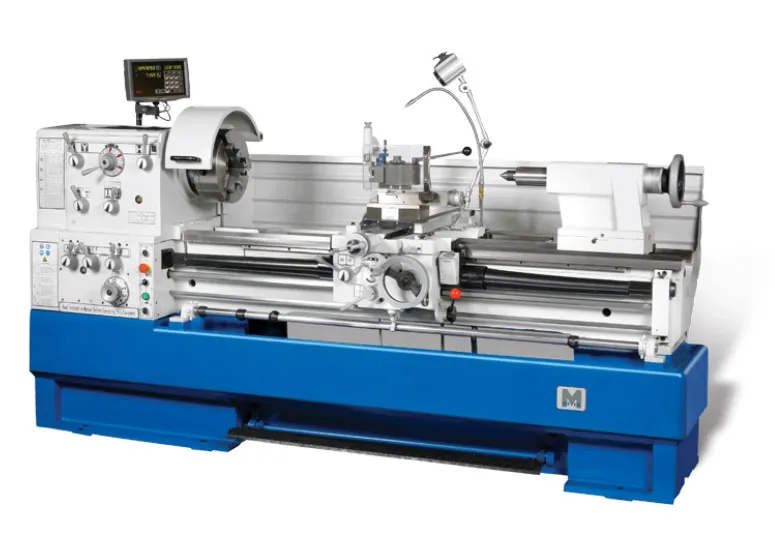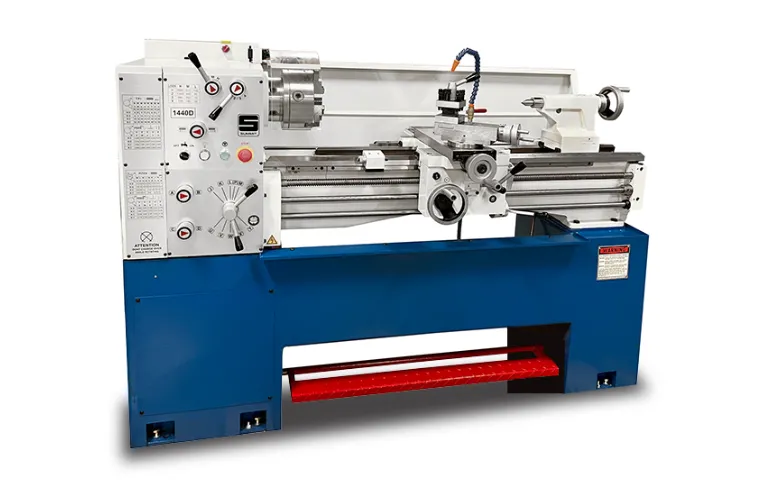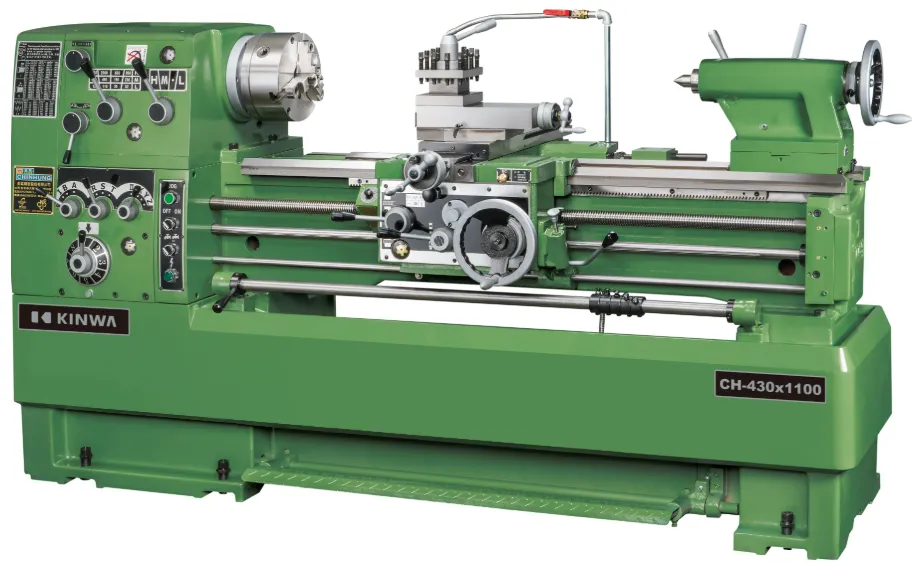Lathes are crucial machine tools widely used in various manufacturing and fabrication processes. They specialize in shaping materials by rotating a workpiece against a stationary cutting tool. This method allows for precise machining operations such as turning, drilling, and threading, making lathes indispensable in various industries, including automotive, aerospace, and metalworking.
Types of Lathes
1. Engine Lathes
Engine lathes are the most common type of lathe found in machine shops. They come equipped with a bed that supports the workpiece, a carriage that holds the cutting tool, and the necessary mechanisms to adjust speed and position. These lathes are versatile and capable of performing a wide range of operations, such as turning cylindrical pieces, creating threads, and facing surfaces to achieve a flat finish.
2. CNC Lathes
CNC (Computer Numerical Control) lathes represent the evolution of traditional lathes through automation and programming. These machines are controlled by computer systems, allowing for precise and complex machining tasks. Operators can input detailed specifications into the CNC system, enabling the lathe to carry out intricate designs with high accuracy and repeatability, making them particularly valuable in mass production.
3. Turret Lathes
Turret lathes are designed with a rotating turret that holds multiple cutting tools, allowing for quick and easy tool changes. This feature makes turret lathes ideal for serial production where the same part requires various machining operations. By reducing setup time, turret lathes significantly enhance productivity while maintaining accuracy.
4. Vertical Lathes
Vertical lathes, or vertical turning machines, feature a vertical spindle and a rotating worktable. This arrangement is particularly effective for machining large and heavy workpieces, such as those commonly found in the aerospace and construction industries. The vertical orientation provides better support and stability, allowing for high-precision machining capabilities.
 Applications of Lathes
Applications of Lathes
Lathes are used across numerous industries, each exploiting their unique capabilities:
-
Aerospace: In the aerospace industry, lathes are used for manufacturing high-precision components such as engine parts, brackets, and landing gear components, which must meet stringent safety and quality standards.
-
Automotive: The automotive sector relies heavily on lathes for producing parts like shafts, gear housings, and brake components. Precision in machining is vital in this industry to ensure performance and reliability.
-
Medical Devices: Lathes are essential in manufacturing surgical instruments, implants, and prosthetic devices. Their precision and ability to work with various materials ensure the functionality and safety of medical products.
-
General Manufacturing: Beyond specialized industries, lathes are commonly used in general manufacturing for creating a variety of parts and components needed in everyday products, from household items to machinery.
Importance in Manufacturing
The versatility and precision of lathes make them a cornerstone of modern manufacturing. They allow manufacturers to produce complex parts that meet strict specifications efficiently. With the advent of CNC technology, lathes have become even more efficient, reducing manual labor and minimizing human error, which is critical in high-volume production environments.
In conclusion, lathes play a vital role in the machining and production landscape, offering the flexibility and precision needed to meet the demands of various industries. Their continuous evolution, particularly with the integration of CNC capabilities, underscores their importance in the future of manufacturing processes. Understanding what lathes are and how they function is essential for professionals in engineering and manufacturing fields.






